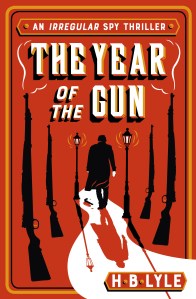The Gambler, the Policeman, and a killer named Gyp the Blood

Manhattan, 1912: On a stifling July night, casino owner and minor-league gambler Herman Rosenthal stepped out of the all-night café of the Hotel Metropole, and into a hail of bullets. The gunmen sped off on the tailboard of a Packard, leaving poor Herman to bleed out on the West 43rd Street sidewalk as the car disappeared into the startling midnight lights of Broadway.
So far, so horrible, but not, as it happens, all that unusual in the New York of 1912 (or today for that matter.) Guns were a part of life in the demi-monde back then, as now, and underworld players frequently met their end at the hands of a ‘stickman’. But this particular act of murder would lead to one of the trials of the century and, ultimately, send to the electric chair a man who wasn’t even at the scene of the crime that day. And not just any man: a policeman.
For years, Lieutenant Charles Becker had been raking money off the Tenderloin, the name given to that section of mid-town Manhattan that was infested with illegal gambling dens, bars and brothels. He wasn’t the only bent copper. The whole town ran on a complex system of bribes, favours and corruption that spread from the party-political machines, to the judges, the cops, and the criminals. Becker, though, was in deeper than most. It’s one thing turning a blind eye to a gambling hell; its quite another to actually co-own an illegal casino. And it really starts to look ugly when your co-owner is murdered on the street.
And this is what happened to Lieutenant Becker. It turned out that he shared a mortgage on a casino with Herman Rosenthal, a fact Rosenthal – who’d become increasingly exasperated about being frozen out of the gambling racket after a previous raid – shared with a super-ambitious young reporter at the New York World, Herbert Bayard Swope. Indeed, on the night Rosenthal died, he had been boasting to all and sundry in the Metropole that he was ‘in the papers’.
These are the stories that I love as a writer of historical crime fiction. Whether you base a whole novel, an episode or a minor character on such events, they add colour, life and authenticity to any narrative. In the case of my latest novel, The Year of the Gun, I already knew I’d be setting it partly in the New York of 1912 and I could never tell such a story without using this gambling world killing in some way. You’ll have to read the book if you want to find out how.
When Herman Rosenthal was shot, everyone in New York – thanks to Swope’s articles – soon began to think Becker must be guilty. And Swope, eager to amplify the story, egged on the equally ambitious D.A. Charles Whitman. The gunmen were soon rounded up: Lefty Louie, Whitey Lewis, Dago Frank and Gyp the Blood were all ultimately tried and executed for the crime and no, I didn’t make up those names. They were heavies normally in the pay of downtown gangster Jack Zelig (real name again!) but D.A. Whitman, in the case against Becker, asserted that it was the policeman who had hired them to do the deed.
It was definitely convenient for Becker that Rosenthal died. He was a material witness that could have ended his career, after all. But then the same could be true for half the criminals in Manhattan. None of them wanted the gambling business splashed across the papers. Nevertheless, the knives were out for Becker. He became the symbol of all that was corrupt in New York policing, and his conviction was political gold dust for Charles Whitman and career manna from heaven for Swope.
And so it was, in the absence of physical evidence, that Becker was convicted, in a retrial, in 1914 and sentenced to death. After a failed appeal, in 1915 the Governor of New York gleefully signed the death warrant, while Swope walked off with the first- ever Pulitzer prize for reporting. Becker sat in the electric chair on July 30th 1915, protesting his innocence (of murder at least) until the very end.
No one believed him. No one cared. Except his wife, Helen, who had the last word. On his coffin she engraved the words:
Charles Becker
Murdered July 30, 1915
By Governor Whitman*
*Yep, that’s right, you’ve guessed it. The ambitious D.A., Charles Whitman, gained so much political cachet in the trumped-up trial of Becker that by the time it came to the execution, he was the Governor of New York.
The Year of the Gun by H.B. Lyle, the new book in his acclaimed Irregular series, is published on 5th November by Hodder & Stoughton.






